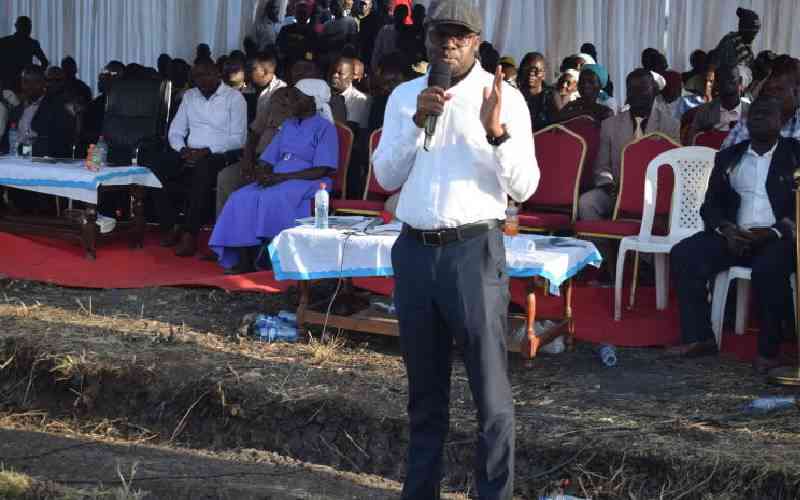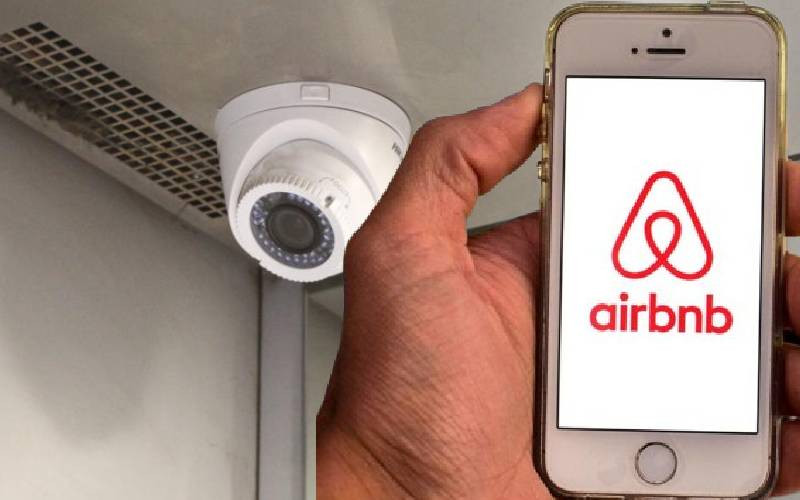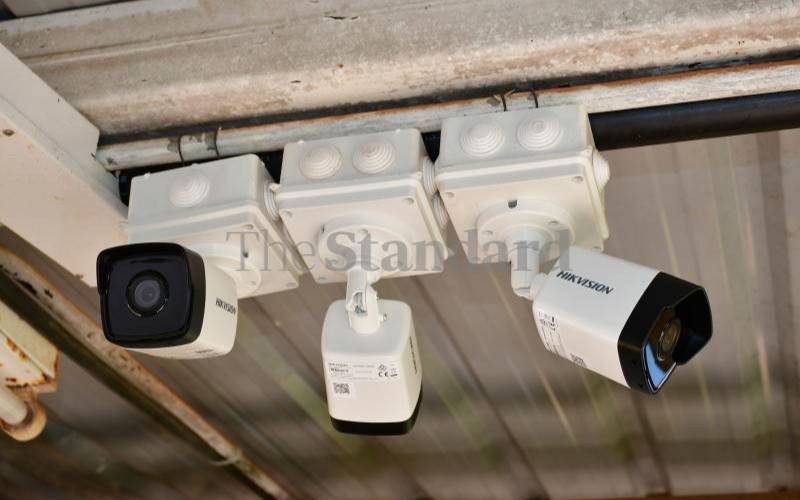Kenya; A key parliamentary committee was yesterday concerned over the betrayal and harassment of media owners by the Government and the regulator in the digital migration row.
At a meeting with media owners from the three media houses whose TV stations were shut down by the regulator, the MPs said they were worried at the bad blood that had fomented over the digital migration between the major industry players on one side and the regulator on the other.
The Energy and Communication Committee’s meeting in Nairobi’s Continental House heard that the Communication Authority of Kenya (CA) wanted the media houses to labour and deliver their content for free to two foreign companies, which will then distribute it, at a fee, to the rest of the country.
“Is there something personal between you and the regulator?” Posed James Lomenen (Turkana South, TNA).
The query came after media owners revealed that the regulator lied to the Supreme Court on the migration deadline, ignored government policy on local investment and even went ahead to raid and impound broadcast equipment. They tabled a cache of letters showing the evidence of their woes at the hands of government in the stand-off.
The MPs said they will call the Cabinet Secretary for Information and Communication, and the CA to come again before the committee to shed light on what appears to be errors in the way digital migration is being implemented in the country.
“We’ll get to the bottom of this matter,” said Jamleck Kamau (Kigumo), the chairman of the House team.
To the media owners, the crux of the matter was in the declaration by the regulator that they had to generate content and allow Startimes and GoTV to air the content to their subscribers at a monthly fee. They also complained about the raid on the Limuru transmission station. They told the committee that they too want a licence for a Broadcast Signal Distributor.
“We are not going to labour for the Chinese. We need to understand why we have to spend to generate content and then give it for free to someone else, who will go ahead and sell it. It is like having a fully-serviced bus and someone tells you that you can’t get a licence and therefore you have to pay the Chinese and use their bus,” said Nation Media Group Chairman Wilfred Kiboro. He led his colleagues Sam Shollei (Standard Group CEO) and SK Macharia (the proprietor of Royal Media Services) in telling MPs their tribulations – the huge investments worth Sh40 billion that risks wasting away; the impending job losses and the high-handedness of the regulator in the shift from analogue transmission to digital transmission.
The media owners told the MPs that they would like to get back on air. Their prayers to the committee were for a push for them to get a licence, a return of the expensive transmission equipment that the regulator confiscated and clearance from the regulator to import set-top boxes. They also sought an extension of the analogue switch-off date to May 30, 2015, well ahead of the June 17, 2015 global deadline.
They debunked the Government propaganda that they were against the shift to digital broadcasting.
“We are in the broadcast industry. The migration dividend is clear to us. This is about equity and fairness. All the sweat and work we have done all these years is going to waste because of the intransigence of the Government and the regulator,” Kiboro told the committee.
MONTHLY CHARGES
The set-top boxes will have universal access to all free-to-air channels, plus wireless internet network. They will retail at between Sh2,500 and Sh3,000. The media owners said they already had an arrangement with Equity Bank for the low-income cadre of TV viewers to access the set-top boxes and pay in installments.
“There will be no monthly charges. Once you buy, that’s it. You continue watching TV. Why should Kenyans be forced to pay for TV?” Posed Shollei
Stay informed. Subscribe to our newsletter
The committee’s concern came as MPs in the House complained that they were feeling alienated following the switch-off of the analogue and TV signals for KTN, NTV, Citizen, and QTV. The MPs piled pressure on the committee to find a solution to the impasse.
“This is a grave matter of this nation, the committee should have expedited this matter and bring a report. We should not be taken back to pre-1990 where Kenyans were forced to watch KBC. Now you have added K24 and on the ownership of K24, I don’t want to go into that now...Those of us who don’t watch these two TV stations are completely disadvantaged. We want Citizen TV back, we want KTN back, we want NTV back, we want QTV back” said John Mbadi (Suba, ODM).
The media houses are using between Sh80 million and Sh240 million per month in operation but getting nothing in return because they are not on air and depend on advertising as a result of their free-to-air business model.
In the Continental House meeting with MPs, the media owners said they had registered the consortium – Africa Digital Network – to work around the licensing conditions that the regulator had put. At least 4,000 journalists risk losing their jobs if the media houses are shut down, said David Ohito, The Standard’s Online Editor.
Those likely to be affected are TV journalists, cameramen, transmission staff, engineers and all those who operate and manage the huge media infrastructure.
 The Standard Group Plc is a
multi-media organization with investments in media platforms spanning newspaper
print operations, television, radio broadcasting, digital and online services. The
Standard Group is recognized as a leading multi-media house in Kenya with a key
influence in matters of national and international interest.
The Standard Group Plc is a
multi-media organization with investments in media platforms spanning newspaper
print operations, television, radio broadcasting, digital and online services. The
Standard Group is recognized as a leading multi-media house in Kenya with a key
influence in matters of national and international interest.
 The Standard Group Plc is a
multi-media organization with investments in media platforms spanning newspaper
print operations, television, radio broadcasting, digital and online services. The
Standard Group is recognized as a leading multi-media house in Kenya with a key
influence in matters of national and international interest.
The Standard Group Plc is a
multi-media organization with investments in media platforms spanning newspaper
print operations, television, radio broadcasting, digital and online services. The
Standard Group is recognized as a leading multi-media house in Kenya with a key
influence in matters of national and international interest.







